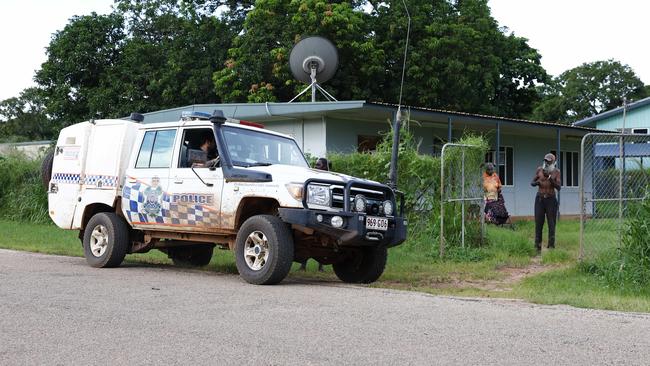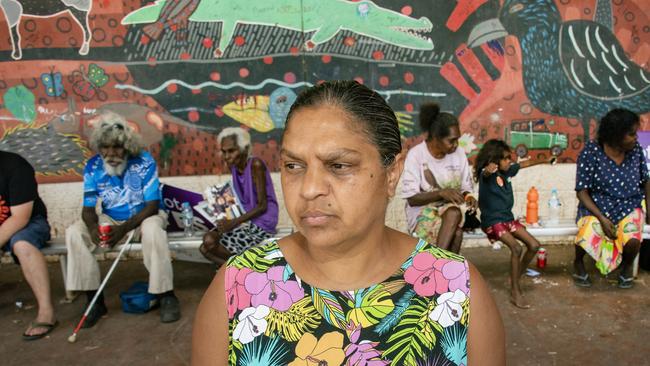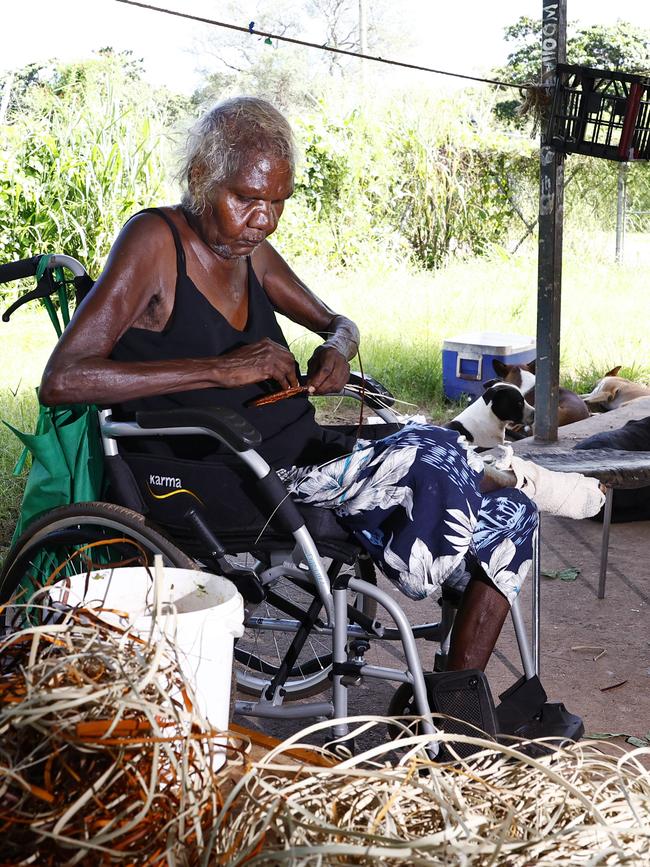Senator Jacinta Price says traditional Indigenous culture to blame for Aurukun social problems
LNP Senator Jacinta Yangapi Nampijinpa Price says the social problems in the Far North Queensland town of Aurukun stem from “parts of traditional culture”, while others lay blame on a disastrous history of government intervention.
Cairns
Don't miss out on the headlines from Cairns. Followed categories will be added to My News.
LNP Senator Jacinta Yangapi Nampijinpa Price says the social problems in the Far North Queensland town of Aurukun stem from “parts of traditional culture”.
It comes after elders revealed record low attendance rates at Aurukun State School were a result, in part, of toxic clan violence in the community 800km northwest of Cairns.
The 42-year-old said she found news “distressing and unacceptable”.
“This is another example of the role parts of traditional culture play in robbing our children of a future and why the gap struggles to close,” the senator from the Northern Territory said.

Ms Price’s comments have outraged Aurukun community leader and former mayor Keri Tamwoy, who said the federal opposition spokeswoman for Indigenous Australians “had never set foot in Aurukun” and had no experience in it.
“As an outsider she has no right to be making judgments about our community, people and culture,” Ms Tamwoy said.
“If her comments are not productive then she should refrain from making comments about Aurukun. This is Wik people’s business.”
Dr Michael Limerick, a barrister with a PhD in Indigenous governance in Far North, Queensland also disagreed with Ms Price.

He said that he believed the issues stem from when the town was created in 1904.
“They were enticed to go there and lived under some very harsh government regulations in a Christian mission,” Dr Limerick said.
He said when Indigenous people transgressed at the mission they were often tied to trees and whipped by the missionary, and children who “stole” mangoes from trees could be hit with a dried stingray tail.
Dr Limerick, who has worked with people in Aurukun for several years, said Indigenous people who worked in the area were originally paid in rations, not money.
When the government said they had to be paid wages, nearly all of Indigenous men in the area were sacked and most of them headed to the dorms of Aurukun.

The veteran barrister said when the government took over the running of the town in 1978, it introduced welfare and alcohol to the community.
He said the employment of non-Indigenous council workers was funded by turnover from multimillion-dollar a year alcohol canteens.
According to the recollections of anthropologist Peter Sutton, young Indigenous girls began propositioning at the tavern, and sexual favours were offered in exchange for cigarettes or petty cash.
Aurukun became a dry town in 1992, and the tavern was shut in 2008.
“Inequality reigned. That’s how we got to where we are today,” Dr Limerick said.
“I mean part of the problem was pushing five clans together in a small space when the town was established.
“Today, there is too little agency for people in Aurukun. There is not a lot you can control in life, it’s crowded, the government owns your house, there are not a lot of opportunities to get a job, there are not really any higher education or training opportunities.”
Senator Price, however, maintained that traditional culture was to blame and that low rates of school attendance did not bode well for the future.
“Education, particularly school attendance, is one of the most important ingredients in ending Indigenous disadvantage and we can’t afford for it to be stymied,” she said.
More Coverage
Originally published as Senator Jacinta Price says traditional Indigenous culture to blame for Aurukun social problems




